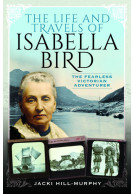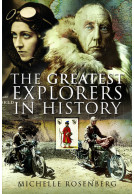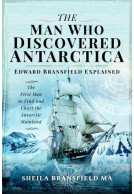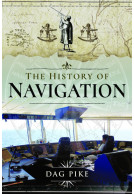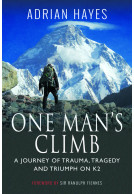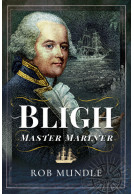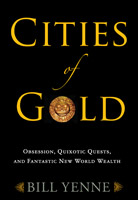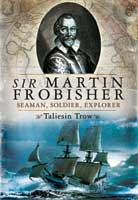
Follow the extraordinary stories of both modern and historical explorers, and discover their fascinating adventures!
29th May 2023 marks the 70th anniversary of the first ascent of Everest by Sir Edmund Hillary and Sherpa Tenzing Norgay
Higher than Everest (Hardback)
Tendi Sherpa: A Lifetime of Climbing the World
Higher than Everest paints an uncompromising portrait of Tendi Sherpa, who has successfully climbed twenty-one mountains over 8,000m, including fourteen ascents of Everest. This young father, part of the elite group of Nepalese guides, embodies the new generation of Sherpas who are taking their destiny into their own hands. In the numerous conferences he holds throughout the world, he never hesitates to denounce the amateurism and obsession of certain people determined to climb Everest, as well as the over-crowding of the sacred Himalayan mountains.As a child, the man who would go on to save many lives on the Roof of the World once dreamed of becoming a monk, and from his years at the monastery, he still retains a deep attachment to Buddhism and its many rituals. Resolutely looking towards the future, but also concerned about respecting the environment and traditions, Tendi regularly returns to the secluded valley of Khembalung, the land of his ancestors, never forgetting where it is he has come from.
Following Nellie Bly (Hardback)
Her Record-Breaking Race Around the World
Intrepid journalist Nellie Bly raced through a ‘man’s world’ — alone and literally with just the clothes on her back — to beat the fictional record set by Jules Verne’s Phileas Fogg in Around the World in 80 Days. She won the race on 25 January 1890, covering 21,740 miles by ocean liner and train in 72 days, and became a global celebrity. Although best known for her record-breaking journey, even more importantly Nellie Bly pioneered investigative journalism and paved the way for women in the newsroom. Throughout her career, Bly’s reportage gave voices to vulnerable people and challenged oppression wherever she found it. Her steadfast conviction that ‘nothing is impossible’ makes the world she circled a better place.Adventurer, journalist and author, Rosemary J Brown, set off 125 years later to retrace Nellie Bly’s footsteps in an expedition registered with the Royal Geographical Society. Through her recreation of that epic global journey, she brings to life Nellie Bly’s remarkable achievements and shines a light on one of the world's greatest female adventurers and a forgotten heroine of history.
Captain James Cook and the Search for Antarctica (Hardback)
Two hundred and fifty years ago Captain James Cook, during his extraordinary voyages of exploration, searched for Antarctica – the Unknown Southern Continent. During parts of his three voyages in the southern Pacific and Southern Oceans, Cook ‘narrowed the options’ for the location of Antarctica. Over three summers, he completed a circumnavigation of portions of the Southern Continent, encountering impenetrable barriers of ice, and he suggested the continent existed, a frozen land not populated by a living soul. Yet his Antarctic voyages are perhaps the least studied of all his remarkable travels. That is why James Hamilton’s gripping and scholarly study, which brings together the stories of Cook’s Antarctic journeys into a single volume, is such an original and timely addition to the literature on Cook and eighteenth-century exploration.Using Cook's journals and the log books of officers who sailed with him, the book sets his Antarctic explorations within the context of his historic voyages. The main focus is on the Second Voyage (1772-1775), but brief episodes in the First Voyage (during 1769) and the Third Voyage (1776) are part of the story. Throughout the narrative Cook’s exceptional seamanship and navigational skills, and that of his crew, are displayed during often-difficult passages in foul weather across uncharted and inhospitable seas.
Captain Cook and the Search for Antarctica offers the reader a fascinating insight into Cook the seaman and explorer, and it will be essential reading for anyone who has a particular interest the history of the Southern Continent.
An Elizabethan Adventurer (Hardback)
The Remarkable Life of Sir Anthony Sherley
Anthony Sherley (1565-1633) was one of three brothers from a Sussex gentry family, whose adventures abroad fascinated their contemporaries. Their doings were celebrated and exaggerated in printed pamphlets and a play on the London stage, but are scarcely known today. Anthony was a soldier fighting in France and the Netherlands, and then an unsuccessful privateer, before his patron, the earl of Essex, chose him to lead a group on a mission to Ferrara, which proved abortive. Sherley then undertook on his own initiative to take his followers on a highly risky journey across Turkey to Persia. He hoped to persuade the Shah to ally with the West against their mutual enemy, Ottoman Turkey. Surprisingly, Shah Abbas the Great (1587-1629) approved the plan, and sent Sherley back to Europe as his ambassador.But after that things went badly wrong. Essex lost all influence at court, and was eventually executed for treason. Sherley was refused permission to return to England. He was on his own, and had to find new ways of living and earning. After various episodes in Venice and Morocco he ended up in the pay of Spain, and was chosen to command a fleet created to stop pirates from attacking Spanish possessions. After the failure of this project he was forced to retire to Granada, and lived the rest of his life on a meagre royal pension. But he continued trying to give advice, based on his past experiences, to the king of Spain and his ministers.
The book will concentrate on Sherley’s career, but will broaden the theme by including chapters on his father and his two brothers, and in particular on Persia and Shah Abbas, the Persian king whom he met. Anthony was an irascible, complex character, often derided and disliked. This biography is more sympathetic than previous ones, and discusses his self-fashioning and his belief in his personal honour, both of which might account for some of his misdemeanours, especially after the death of his patron.
The Life and Travels of Isabella Bird (Hardback)
The Fearless Victorian Adventurer
Isabella Bird travelled to the wildest places on earth, but at home in Britain she lay in bed, hardly able to write: 'an invalid at home and a Samson abroad'.In Japan she rode on a 'yezo savage' through foaming floods along unbeaten tracks, and was followed in the city by a crowd of a thousand, whose clogs clattered 'like a hailstorm' as they vied for a glimpse of the foreigner. She documented America before and after the Civil War and was deported from Korea with only the tweed suit she stood up in during a Japanese invasion. In China she was attacked with rocks and sticks and called a foreign dog, but she never gave up and went home. 'The prospect of the unknown has its charms.'
Transformed by distant lands, she crossed raging floods, rode elephants, cows and yak, clung to her horse's neck as it clambered down cliff paths, slept on simple mats on the bare ground, unable to change out of wet clothes or get out of the searing heat.
Her travels and the books she wrote about them show courage and tenacity, fuelled by a restless spirit and a love of nature. She is as unique now as she was then.
Captain John Smith, Adventurer (Hardback)
Piracy, Pocahontas and Jamestown
Captain John Smith is best remembered for his association with Pocahontas, but this was only a small part of an extraordinary life filled with danger and adventure. As a soldier, he fought the Turks in Eastern Europe, where he beheaded three Turkish adversaries in duels. He was sold into slavery, then murdered his master to escape. He sailed under a pirate flag, was shipwrecked and marched to the gallows to be hanged, only to be reprieved at the eleventh hour. All this before he was thirty years old.He was one of the founders of the English settlement at Jamestown, where he faced considerable danger from the natives as well as from within the faction-ridden settlement itself. In fact, were it not for Smith’s leadership, the Jamestown colony would surely have failed. Yet Smith was a far more ambitious explorer and soldier of fortune than these tales suggest. This swashbuckling Elizabethan adventurer was resourceful, intelligent and outspoken, with a vision of what America could become. In this riveting book, R.E. Pritchard tells the rip-roaring story of a remarkable man who refused to give in.
Scott of the Antarctic (Hardback)
We Shall Die Like Gentlemen
Captain Robert Falcon Scott CVO (6 June 1868 – 29 March 1912) was a Royal Navy officer and explorer who led two expeditions to the Antarctic regions. During the second venture, Scott led a party of five which reached the South Pole on 17 January 1912, only to find that they had been preceded by Roald Amundsen's Norwegian expedition. On their return journey, Scott and his four comrades all perished from a combination of exhaustion, starvation and extreme cold.Before his appointment to lead the Discovery Expedition, Scott had followed the conventional career of a naval officer in peacetime Victorian Britain, where opportunities for career advancement were both limited and keenly sought after by ambitious officers. It was the chance for personal distinction that led Scott to apply for the Discovery command, rather than any predilection for polar exploration. However, having taken this step, his name became inseparably associated with the Antarctic, the field of work to which he remained committed during the final twelve years of his life.
Following the news of his death, Scott became an iconic British hero, a status maintained and reflected today by the many permanent memorials erected across the nation.
Sue Blackhall reassesses his life and the causes of the disaster that ended his and his comrades' lives, and the extent of Scott's personal culpability. From a previously unassailable position, Scott has became a figure of controversy, with questions raised about his competence and character. However, more recent research has on the whole regarded Scott more positively, emphasising his personal bravery and stoicism while acknowledging his errors, but ascribing his expedition's fate primarily to misfortune.











